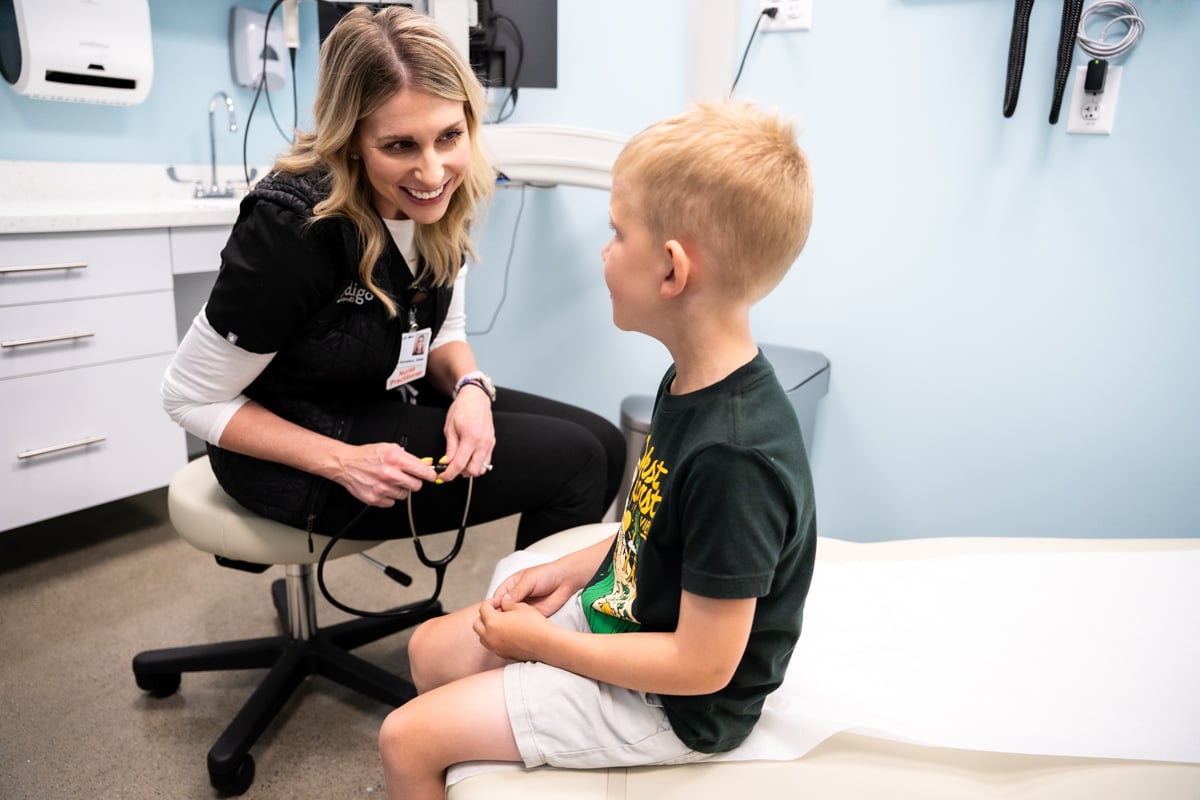This year, spring is the new fall for school sports. Many teen athletes have hit the practice fields as local schools restart sports that were previously canceled due to COVID-19 restrictions.
After an extended time away from their usual group activities, your teen athlete might need a little extra time to get back in shape. Easing back into their favorite sport and gradually increasing activity will help prevent injuries and get them back in the game safely.
Quick tips to stay safe during sports season
No matter what sport your child plays, they always run the risk of getting injured during practices or games. Sprains, strains and minor fractures are some of the most common injuries.
Most urgent care clinics, like Indigo Health, can treat minor injuries, but there are some strategies your teen can take to avoid getting hurt in the first place.
1. Don’t skip warm-ups or cool-down stretches
When you rush into any type of exercise without properly warming up first, your muscles are more vulnerable to minor injuries. Your teen should start their warm-up by doing some light cardiovascular activities, such as jumping jacks, easy jogging or brisk walking.
This will ease their muscles from a resting state to an active one. After a workout, cool down with a few stretches. This helps with flexibility and can reduce the risk of strains and sprains.
2. Listen to the coach and follow guidelines
While COVID-19 remains a threat, new guidelines are in place to keep everyone safe. Check with your child’s coaching staff to stay updated on the latest precautions. This may include wearing a face mask during practices and games, and staying socially distant from teammates when off the field.
If your teen experiences any COVID-related symptoms, be sure to inform the coach, stay home, and follow the proper protocols for getting tested.
3. Use the right equipment
This may seem obvious, but if your teen plays a sport that involves protective equipment, be sure they use it every time they play, especially when they are “unofficially” playing with their friends.
- Helmets should fit snugly -- but comfortably -- on your athlete's head for the proper fit. This will prevent it from tilting backward or forward and causing an injury.
- Wearing a mouthguard helps protect teeth and jaws from wayward balls or elbows to the face.
- Wrist, knee and elbow guards can help prevent stress fractures, as well as painful cuts and scrapes.
4. Schedule a sports physical
Many schools have changed their sports physical requirements this year, offering an extension. But if your athlete has not had a sports physical with their doctor in the past 12 to 24 months, it’s a good idea to schedule an appointment.
You can even schedule a physical at an urgent care clinic near you. Indigo Urgent Care’s medical providers can evaluate your child, complete the participation paperwork, and ensure your student athlete is fit to play all season long.
Following the recommendation of the American Academy of Pediatrics, Indigo Urgent Cares are unable to perform sports physicals for children or adolescents who have had COVID-19. If your child has recovered from COVID-19, they will need to be cleared by their pediatrician or primary care provider for participation in sports.
Having a physical before the season begins can help prevent sports injuries by catching any health problems early on.
Get care for minor injuries
Sometimes injuries happen, whether due to overuse, an awkward landing or simply an accident. Watch for limping, swelling or continuous pain that doesn’t improve with ice and rest. These are often signs that an injury needs treatment. Indigo Urgent Care has over 30 locations across Washington with onsite X-ray.
Our friendly team is ready to evaluate and treat minor injuries and get your athlete back in the game as soon as possible.


